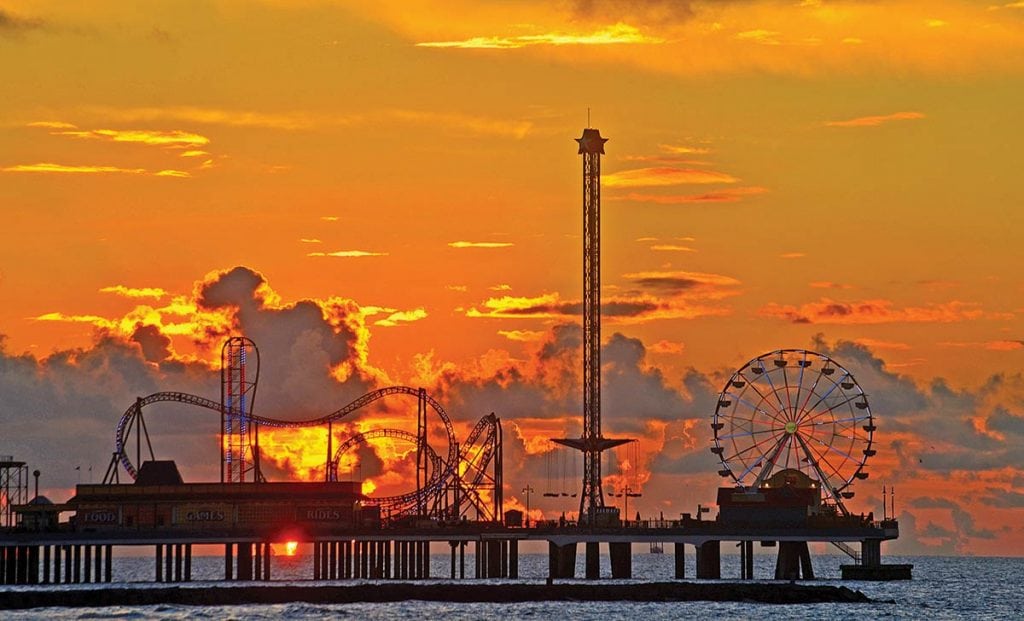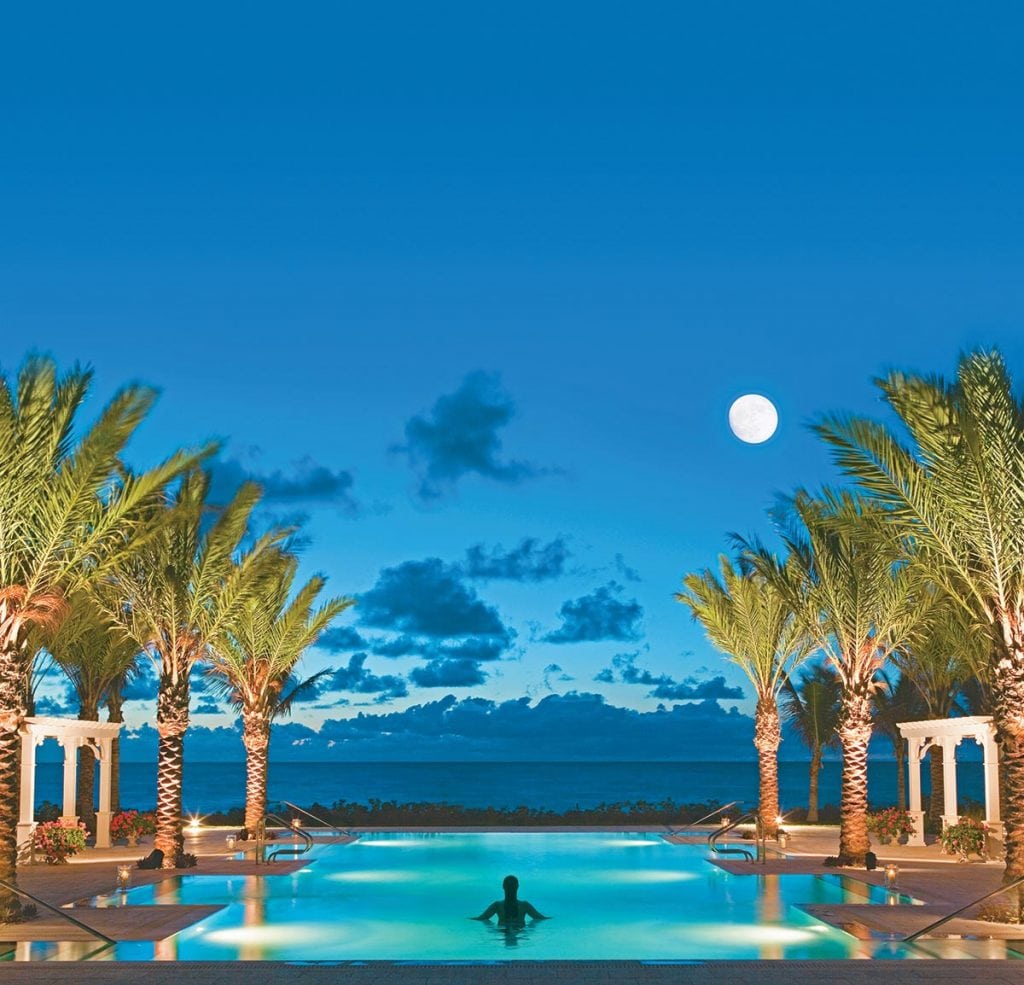Southern Sojourn
If you’re cruising along the Simon Bolivar Peninsula, don’t be surprised to see cattle drives with Texas cowboys moving their herds over two-lane highways crossing the ICW. The wide Texas beaches on the coast hide cattle country and oil derricks and slowly give way to raised beach houses with names like “Gulf Breeze” or “Jolie’s Hideaway.” The inevitable one-horse beach shop with their airbrush artisan and seashell wind chimes are also there, but sail past historic Fort Travis and the Bolivar Lighthouse rising on the western tip of the peninsula, and Galveston Island beckons with her historic architecture, beaches and maritime culture.
Once known as a gambling mecca until the Texas Rangers raided the town, Galveston was also the largest port on the Texas coast, pulling down cotton and cattle from the interior and ushering in generations of Indian fighters and future Texas land barons. Crossing the Houston Ship Channel to the island is spectacular, with its never-ending run of modern freighters bypassing Galveston and heading into Houston or sailing to points unknown. This leaves the island town with a different sort of nautical energy today—one of history, charter captains and resortwear.
Located on the island’s northwestern edge, the Galveston Yacht Basin is a full-service private marina and an ideal transient slip location to begin an exploration of the island. Filled with charter fishing vessels, the piers hum with skippers tinkering on their boats or, more likely, catching naps in the ubiquitous land tenders—their golf carts lining the marina. Dockside restaurants are sprouting up around the marina, and certain piers in the channel will get transients within easy walking distance of the historic downtown and seaport.
The Texas Seaport Museum with her beautifully restored 1877 Tall Ship Elissa is an ideal start to get your bearings. Lunch next door waterside at the Olympia Grill or Willie G’s and savor the contrast of Elissa with berthed luxury yachts and the modern cruise liners that now call Galveston their home port.
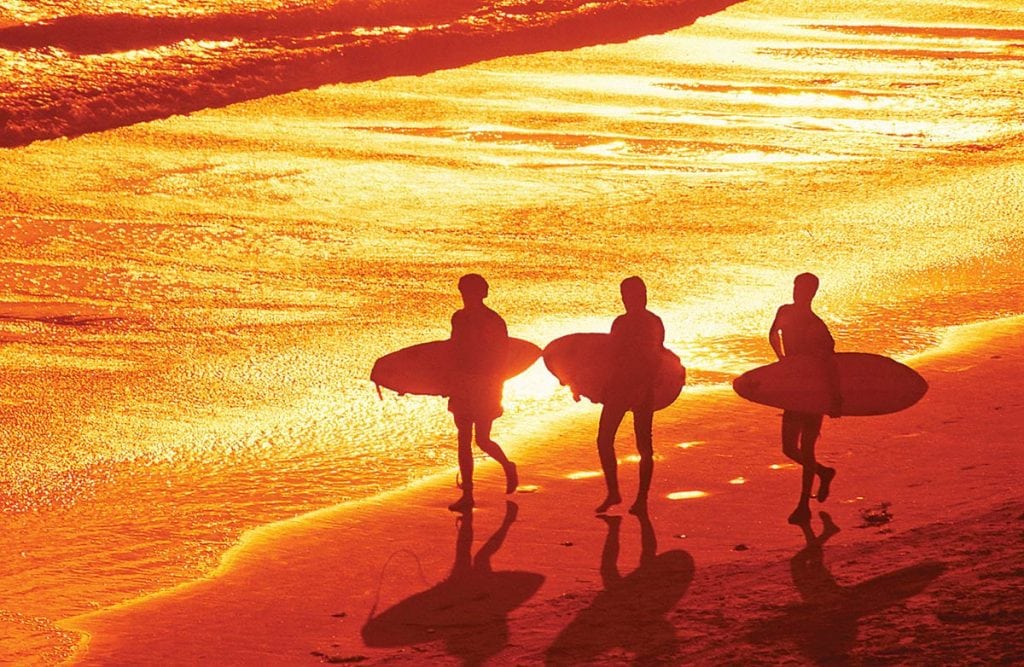
for the perfect wave on Galveston Island Beach. Photo: Galveston Island CVB
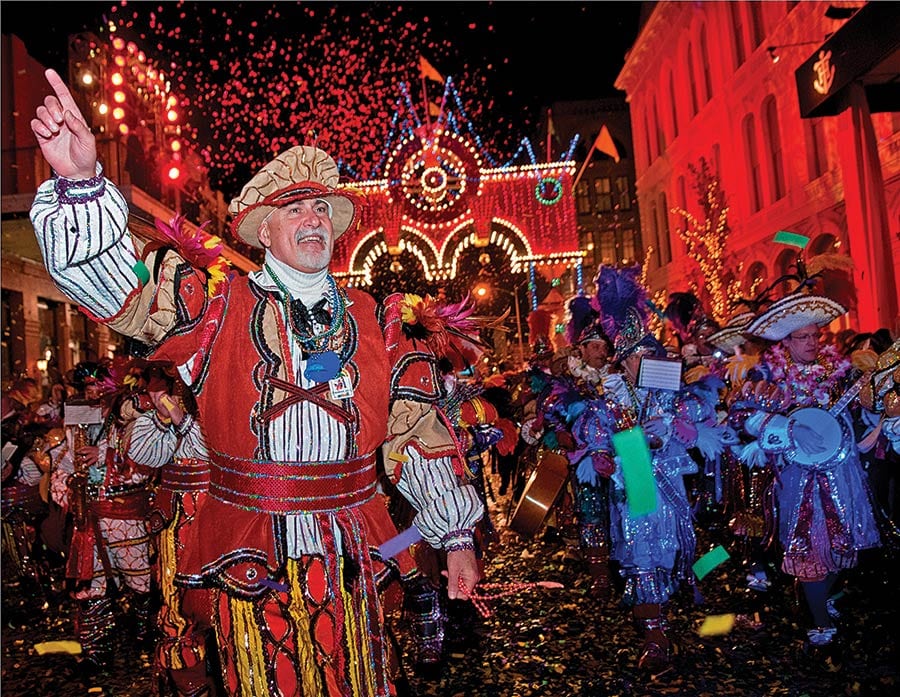
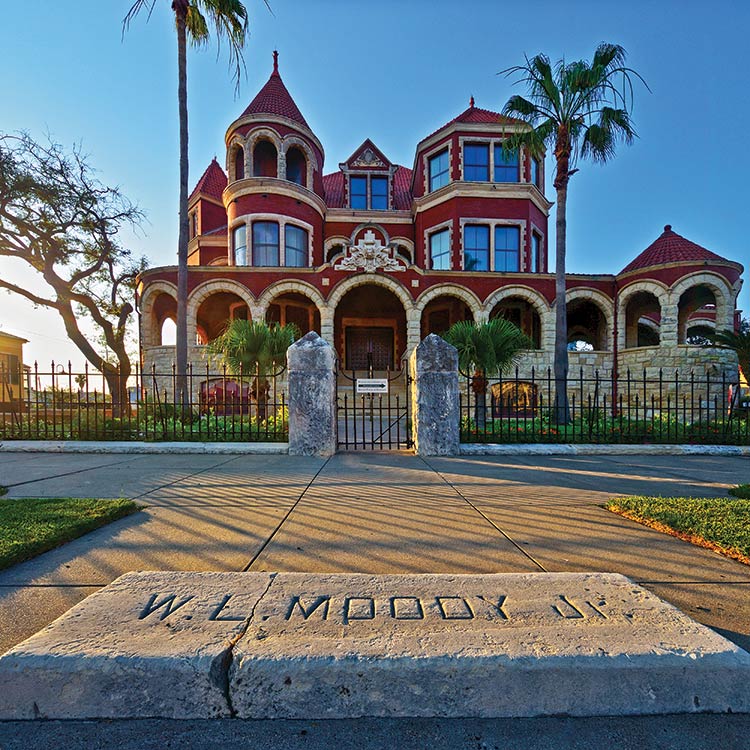
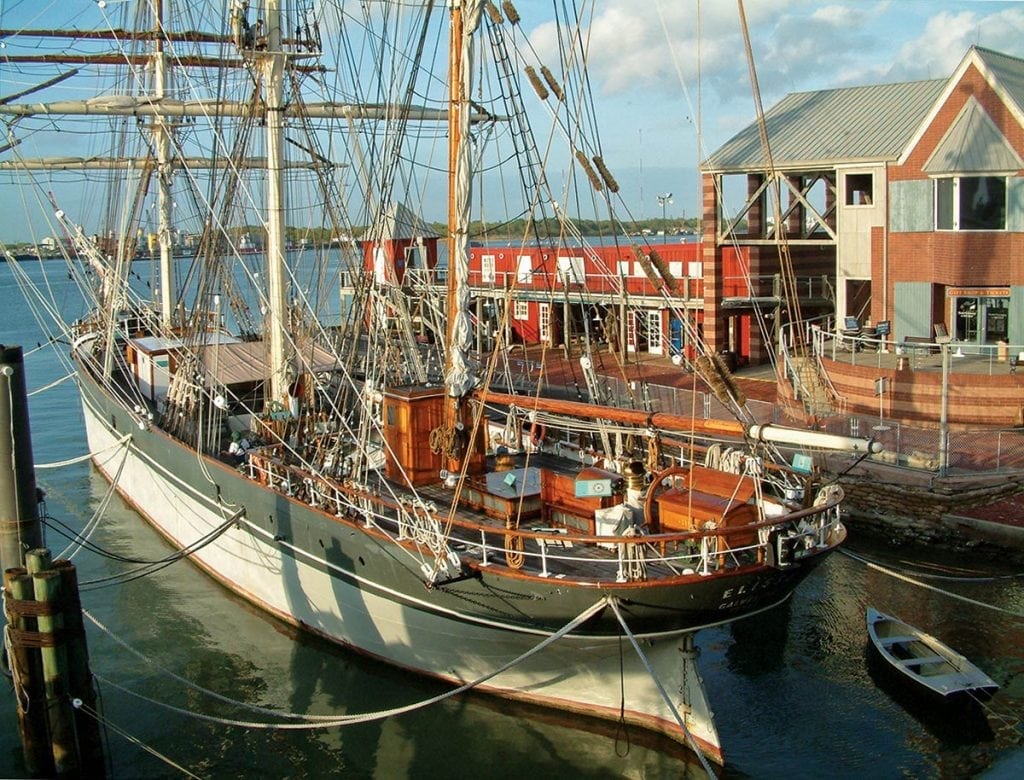

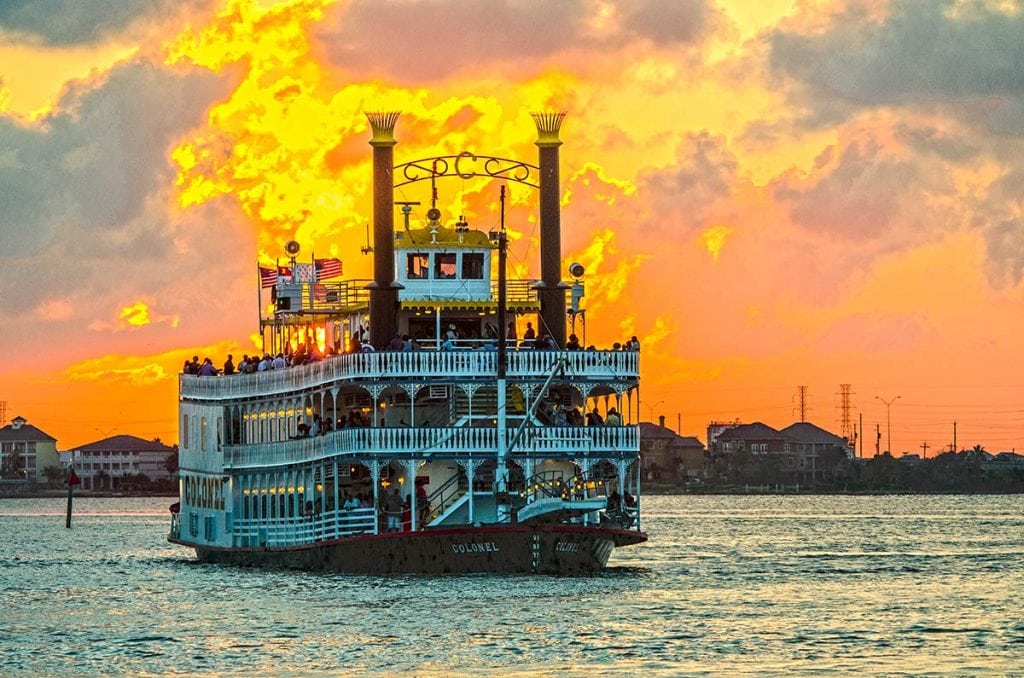
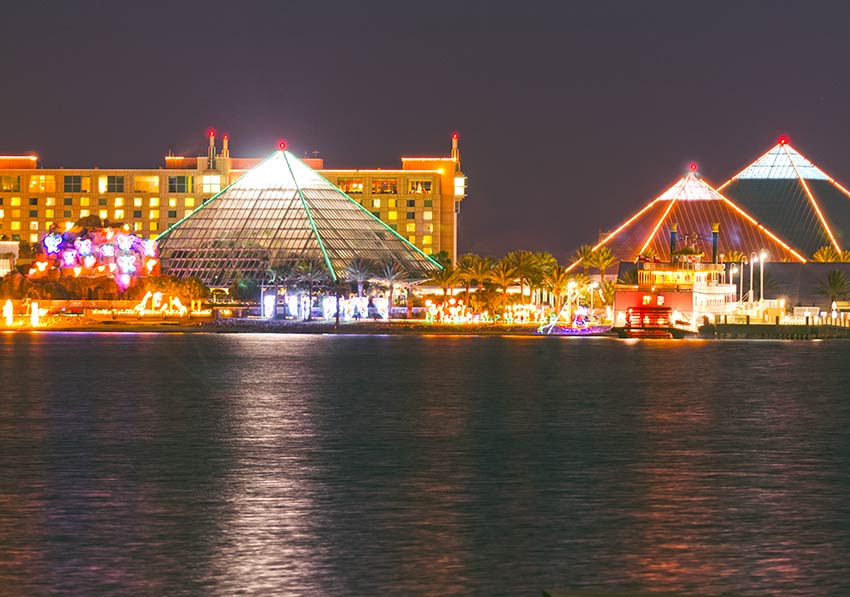
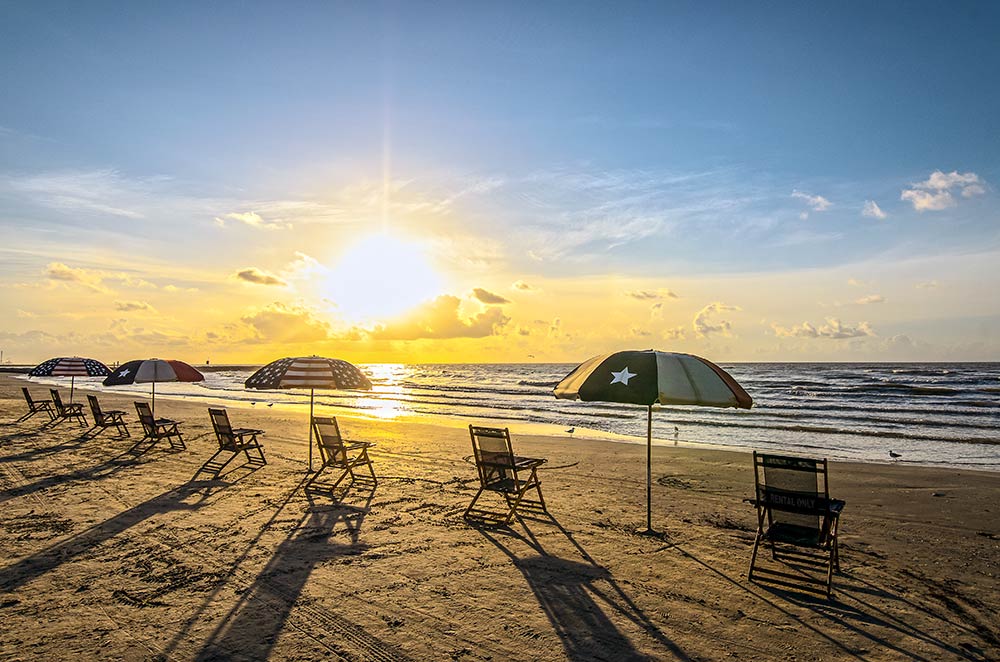
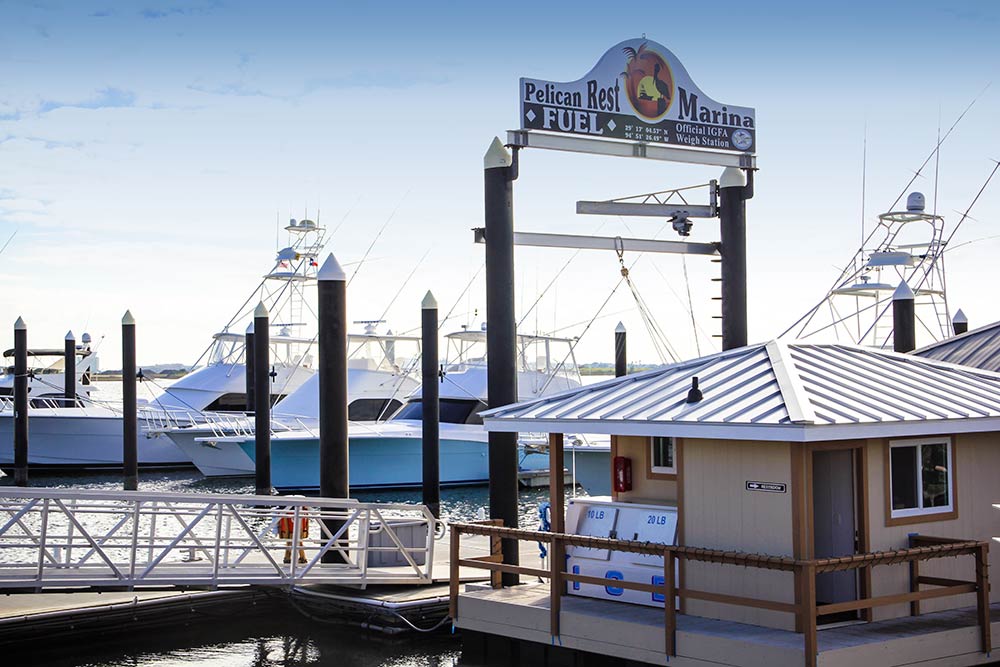

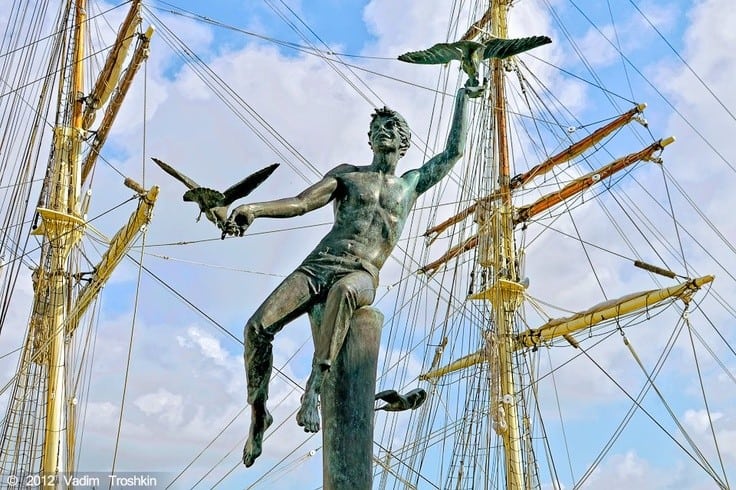
A block away is the Strand—Galveston’s historic Victorian-era shopping district. Filled with unique shops and whimsical cafes with wrought-iron balconies on the restored historic buildings, the Strand is the pulse of Galveston. Shop at the Admiralty for some of the finest ship replicas constructed from scratch using their original ship plans, or enjoy freshly made saltwater taffy at LaKing’s Confectionary. Catch a carriage ride through the historic residential neighborhoods filled with homes straight out of New Orleans’ Garden District. Tour or catch a show at the Grand 1894 Opera House before finishing with dinner and drinks at the legendary Rudy & Paco’s—reservations are a must.
Coastal artists abound and the street simply known now as Postoffice is full of galleries showcasing enough nautical art to adorn your vessel’s staterooms. Keep an eye peeled for the work of Gay Paratore, Robert Peterson and Gayle Reynolds. Postoffice is also home to many pubs and coffee shops and only a few blocks from the historic home tours on Broadway where massive stone mansions rise—Bishop’s Palace built in 1892 and the 1895 Moody Mansion are majestic.
Galveston—like much of the Gulf Coast—has been subject to the ravages of hurricanes throughout her history. In 1900, a massive storm struck the island and drowned over 6,000 residents. It is important to remember while walking the historic districts and neighborhoods of the island that after this storm, residents banded together and embarked on one of the most unheralded engineering feats in American history. Every surviving structure—from massive mansions to humble homes with picket fences and down to the lowliest barns—was raised up on stilts and piers to an average of eight feet high. Gargantuan amounts of dredge from Offatts Bayou to the southwest were then painstakingly pumped in to raise the grade of 500 city blocks. Streets, sidewalks and utilities were then rebuilt as well as a massive beachfront seawall, which again has become the playground of Texas. Today, the bustling seawall is filled with fishing piers, restaurants and 32 miles of beaches quietly rolling with surf from the Gulf of Mexico. Stroll the giant old-school Pleasure Pier, with her amusement rides and restaurants jutting straight out over the Gulf. Relax and fish off the piers before taking in dinner at the classic coastal seafood restaurant and cherished dining tradition, Gaido’s, which has run continuously since 1911—do not miss the charbroiled oysters brought in fresh from nearby Port Aransas.
Nearly all of the beaches in Galveston are open to the public with the most scenic being East and Stewart Beaches. Pack an ice chest and enjoy the warm Gulf waters, where a nice building wind from the east will even allow surfing. Keep your eyes peeled for Texans with their trucks and Jeeps, for nearly all of Texas allows vehicular traffic on the beaches.
Galveston is filled with museums and amusements for children. With the connection to the oil industry, a giant Drilling Rig Museum sits in the harbor, and the Railroad Museum resides on the Strand. Harbor tours run from the Seaport, and there are public golf and putt-putt courses as well as a multitude of water parks, state parks and hiking trails.
For an exciting and romantic evening boat over to Offatts Bayou and tie up at the Pelican Rest Marina. This private facility is angling to become its own mini-resort with a pool and adjacent tiki bars. The upscale steakhouse of Number 13 overlooks the grounds with ship’s captains cruising from pier party to pier party on giant tricycles. From the decks, the massive lighted pyramids of Moody Gardens and the Colonel Paddlewheeler across the bayou reflect on the waters while Jimmy Buffett cover bands work their magic.
Immediately next door to the Pelican Rest Marina is the multi-million dollar construction for the future home of the Sea Scouts in Texas. With private funding this facility and marina is set to become a world-class maritime school and camp for the Sea Scouts and will be an important educational facility for training the next generation of cruisers and sailors on the Gulf Coast.
Within a few hours’ sail north of Galveston lies the famous Kemah Boardwalk. With ample transient slips available, this giant amusement park and retail/dining establishment is filled with energy and hosts concerts and shore-side entertainment. Kemah and the areas nearby are filled with facilities for cruisers.
Galveston is home to residents who can trace their island roots back to when pirate Jean Lafitte roamed these shores. Filled with islanders enjoying their southern gardens, charter captains swapping fish tales at their favorite watering holes, and artists setting up easels to capture the sunsets, Galveston is one of those rare spots on the Texas coast that feels more in tune with the rhythms of the Gulf Coast than the bustling cities and sprawling ranches of the interior. The island and her residents are ready and waiting for you to tie up, walk her palm and oak-lined streets, and dig your feet into Texas sand.
By Troy Gilbert, Southern Boating March 2014


